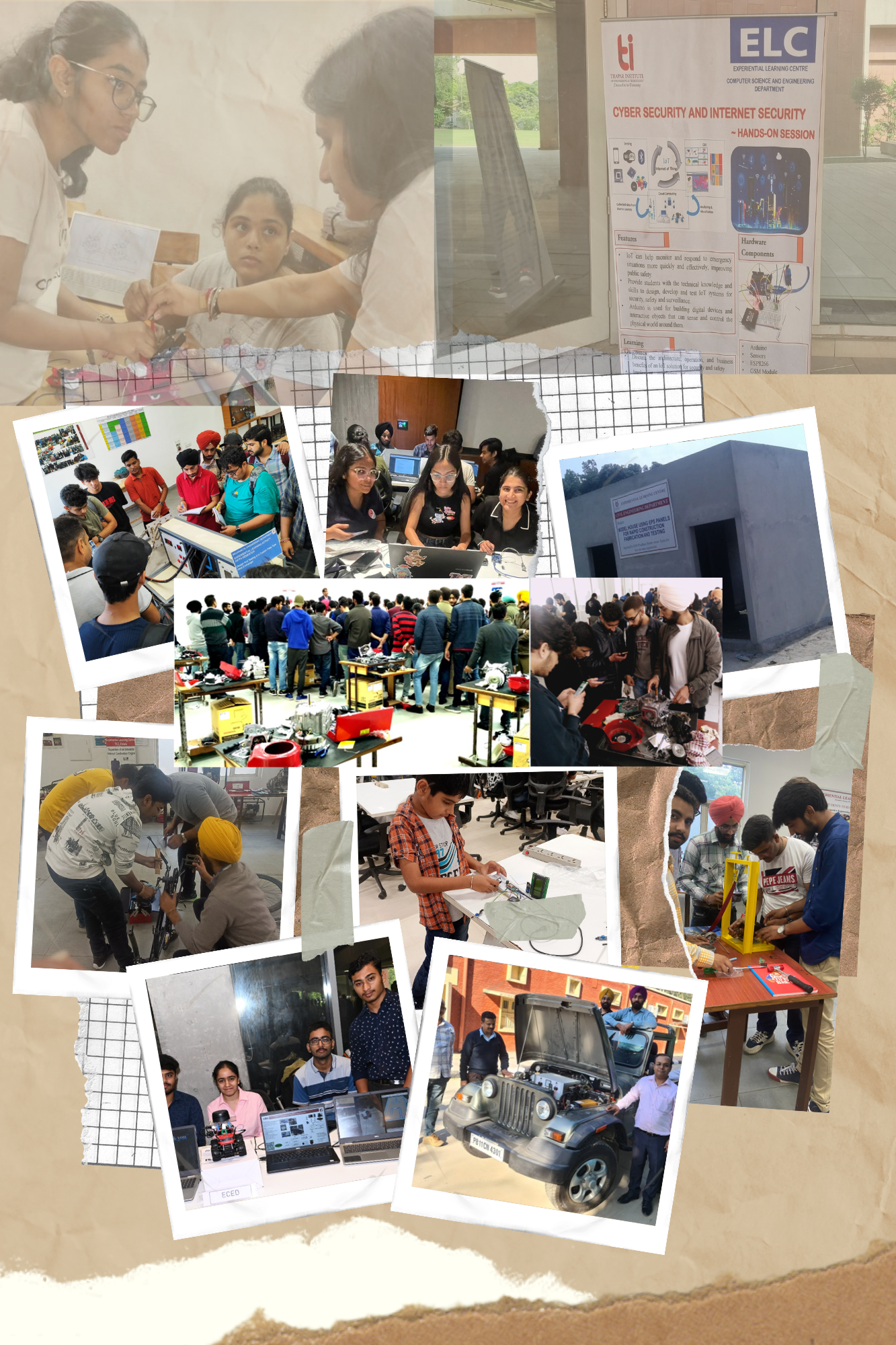About
Concept of Experiential Learning was initiated at TIET, Patiala under the guidance from Prof. Sanjeev Bedi from University of Waterloo, Canada and a dedicated Center has been established at TIET, Patiala in January 2018. Prof. Sanjeev Bedi has seeded the concept of Experiential Learning at TIET and mentored a dedicated team of faculty experts in understanding and thereafter, identifying various discipline specific experiential projects and activities particularly for the undergraduate students. The team of self-motivated and trained group of faculty experts from major engineering domains have identified key engineering skills necessary for the students considering national and international perspectives. As an outcome of this endeavor, a set of dedicated experiential learning modules have been built around the required essential engineering skills through pilot projects, which are first tested with smaller student groups and later scaled projects are rolled out as co-curricular projects which are strongly integrated with the curriculum of the respective engineering programs.

Guiding Philosophy
- To introduce the undergraduate students to real life engineering problems in every semester of their graduation through projects with focus on open ended problems requiring self-explored, innovative, engineered solutions by a teams of students, similar to real engineering job challenges.
- To move from prescriptive lab based experiments and model/simulation based projects to real life engineering problems to be solved using research based, student centric, and outcome based approaches to generate real solutions which are more tuned to industry requirements and emulate the practice based education adopted by the top academic institutions of the world.
- The experiential leaning projects serve as cornerstone projects for undergraduate students, preparing them for the Capstone Projects of the final year, and better meeting the outcomes expected under NBA and ABET accreditations.
ELC Initiatives
- Experiential activities for all UG students
- Summer and Winter Internship
- Sponsoring and Mentoring Student Projects in Emerging Areas
- Sponsored Research Projects involving UG students.
The experiential activities for all UG Programs provides an early and enriching exposure to product design cycle and team work to attempt an open ended engineering problem.
- Multi-disciplinary experiential activities are designed and tested in-house by the faculty of the respective disciplines with the involvement of UG students.
- Experiential activities are aimed to prepares the students for their capstone projects.
- The open ended engineering design projects s the students towards self-learning as well as enhances their imagination and ability to innovate, create and demonstrate.
- Faculty experts identify the key skills necessary for engineering graduates and identify student projects around such skills
- Faculty conduct the “Pilot Projects” with smaller student groups to validate the learning outcomes
- Projects for junior years to be simpler, while complexity of engineering design is rigorous for senior students
- EL projects to imbedded with curriculum with preferably no credits to promote individual creativity and innovation.
- Continuous process of refining and updating the EL activities considering feedback from academic and industry experts.
